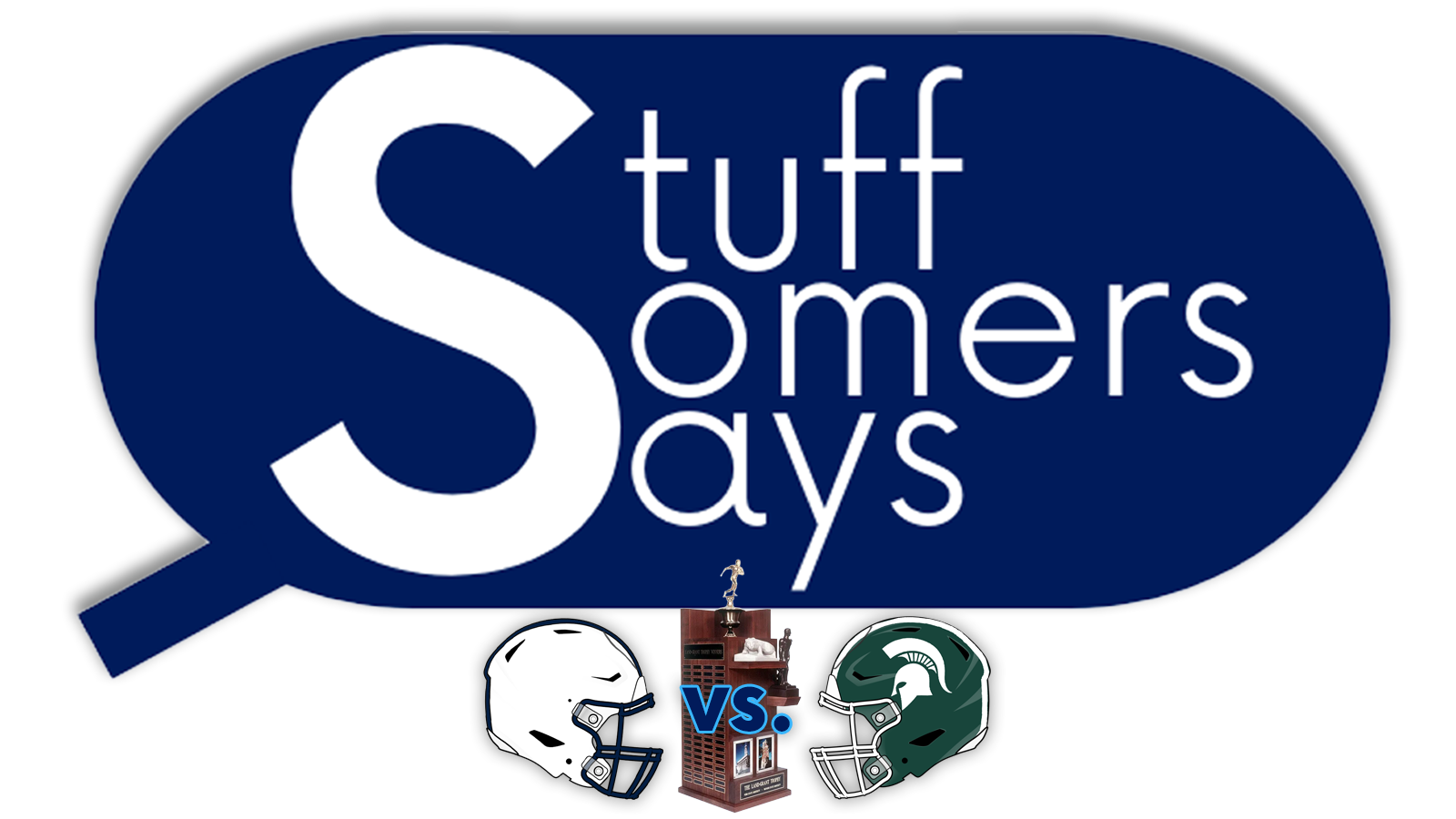
We’re barely three games into the football season and already there are four words that should be benched — sidelined for overuse by the media.
We’ll hit them alphabetically, which seems the fairest way to treat these offenders.
“Brand”
Unfortunately, it’s all about the brand. Penn State’s brand. The players’ brands. The Big Ten Conference’s brand.
Penn State this week hired another deputy athletic director (the program’s 10th person with either a deputy or senior associate title), and the announcement of the new position said the addition would help “amplify the voices and stories of its student-athletes, while also fostering a meaningful connection with fans and stakeholders.”
In addition, the position is an “indicator of Penn State Athletics’ commitment to empowering student-athletes to grow their brands,” and will oversee strategic communications, social media, creative services, branding and marketing. And, of course, work to generate revenue and enhance financial stability.
First, it’s clearly all about the brand. Second, they had a lot of people doing those jobs already (or at least leaders with strikingly similar titles and duties).
Sometimes, though, don’t you just want it to be all about the blocking and tackling as opposed to the brand?
“Consistency”
With the Southeastern Conference’s move to a nine-game schedule, coach James Franklin has been among those who’ve lauded the “consistency.” Those folks argue it’s good for the sport, putting everyone (mostly the Big Ten Conference and the SEC) on equal footing.
That’s simply not true. Sure, the number of conference games will be the same for each, but consistency remains elusive, at best. The same number does not make things equal.
Road trips to play Maryland, Northwestern or Rutgers are probably not the same as playing at Alabama, LSU and Texas. In fairness, going to Kentucky, Mississippi State and Vandy is not the same as Michigan, Ohio State and Penn State, either.
Arguments about differences will persist even if teams in both conferences play the same number of games.
So, consistency sounds aspirational and wonderful, but it’s not a guarantee.
“Flashed”
This feels like the most recent addition to the list. It’s a bit of jargon those covering college football (especially Penn State?) offer up in place of more accurate words to summarize good performances.
A reporter asks about a player who “flashed” against an opponent and if that will lead to more playing time.
It’s certainly a sign of my age, but could the question simply be about someone playing well? Maybe a little specificity instead of more jargon?
It’s just an extension of the media’s love for coachspeak. That includes acronyms, too.
You know, some media member asking or talking about “PI” (pass interference) or “DPI” (defensive pass interference) — just to show they know the initials and jargon. Doing that does not really serve readers or viewers, but it sounds super knowledgeable and sporty. Apparently.
It’s like they flashed some knowledge just because they could. (See? Several words would work better there than flashed. Just wanted to see if you were paying attention.)
“Generational”
This word has been used a lot lately, and usually comes in tandem, the first part of a two-word, adjective-noun combination. Specifically, “generational talent.”
That’s just so much hype and laziness.
How good is a player? Well, many opportunities exist to define it with comparisons, descriptions or statistics. And going with that approach would be more accurate and helpful.
Plus, many of those tossing out the “generational talent” phrase have barely lived more than a generation themselves. So how could they know?
And if veteran media members are using the phrase, they should be experienced enough to know better. Or experienced enough to offer more useful comparisons and information.
If you’ve enjoyed this content, please subscribe to Stuff Somers Says With Steve on YouTube. Or join our newsletter by entering your email below.

